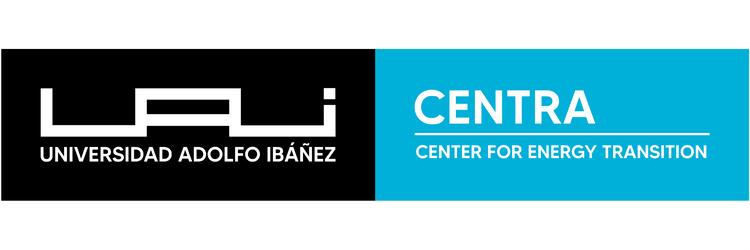Should competition be introduced into electricity distribution?: Experts address difficulties and aim to modernise regulation
August 12, 2024
Following the massive and persistent power cuts, there are voices that have begun to consider that more actors can enter the distribution industry and stop it from being a natural monopoly.
As of Friday, 60 thousand clients nationwide were still without power, according to the Superintendency of Electricity and Fuels (SEC). This is more than a week after the storm that hit the central-southern part of the country with winds of up to 125 kilometers per hour. In recent days, both the Government and the citizens have aimed their darts at the industry. Enel and CGE have received harsh criticism for the delays, but it is the former that has taken the brunt.
This is because the Executive has initiated a process of expiration of its concession, which in its first stage – the administrative one – requires it to comply with certain deadlines for replacement, which it has been able to overcome so far. The situation has been tense and ended up opening a debate about the future of the industry. Today, distributors, which are located in cities, operate the physical network and sell energy to customers, but they operate as a monopoly. This means that people, because they live in a certain area, are obliged to contract energy from the company that is in their city.
There is no alternative. This situation is what has begun to be questioned. Could competition be introduced, with the aim of improving the quality of services? Experts see it as something complex, due to the difficulties that moving to that model would imply and the costs that it could entail. Can competition be incorporated? Senator Juan Luis Castro (PS), president of the Senate’s Mining and Energy Commission, assured Radio Universo that Congress will try to advance a reform to distribution. “If you live in Ñuñoa, you have Enel no matter what, you have no other alternative,” he explained. “Competition has always been good. There are monopolies in distribution. Regardless of Enel’s fate, what matters is that the user can choose a marketer.” He added that “the network, the poles, the cables will be the same, owned by some, but what we want is that you, living anywhere, have the right to choose marketers.”
Claudio Seebach, former president of Generadoras Chile and dean of the Faculty of Engineering and Sciences at Adolfo Ibáñez University, however, says that competition is not the solution. “It makes no physical or economic sense to fill the city with two electric networks. In electric lighting, the quality of service is determined by the quality of the cables,” he begins by saying. He adds that “if you put in competition, in case there are two companies, both would have to deploy twice as many networks and each one would have twice as expensive an electricity bill, because each network would have to be paid for by half of the clients. In basic, physical economics, competition makes no sense.” He also points out that marketing occurs on “the same network.” “The marketer needs the cable network and what failed us now is the cable network, it’s not that there was no production,” he explains. The professor of Industrial Engineering at the University of Chile, Ronal Fischer, is also skeptical about a measure like this. “No,” he says at the outset. “They are natural monopolies. Competition would mean that in a concession area there would be two (or more companies) competing, so there would be twice as many cables.” Regarding the possibility of introducing competition only in marketing, he explains that “it doesn’t help with the security of the service.” “Even if you had two companies,” he adds, “if the wires were hung from the same poles, security could worsen. They would have to have poles on the other side of the street, so that if the tree falls, it would be less likely that both poles would fall. But the cost would be enormous, and consumers would have to pay for it in the end. It doesn’t make sense.” Carlos Smith, a research professor at CIES-UDD, also believes that it is more convenient for a single company to take charge. “In the end, more companies have to have the same cost structure, but with fewer clients when there is competition, therefore that would increase the cost and the prices paid by consumers.”
He also maintains that it would be possible to “have meters that allow selling a certain amount of consumption that I do not use, but it also generates greater investment and, therefore, higher costs. We have to see if we are willing to do that.” Thus, he also says that “they are natural monopolies, in that sense it would not be convenient.” Finally, he adds: “Certain parameters must be set for smaller clients. In that case, the regulator acts as if they were one. At that level, I think it is better to have a regulatory body. The regulatory conditions are those that have to be modernized.” Esteban Viani, economist and academic at the University Autónoma, meanwhile, explains what in his opinion would be the difficulties to advance in an eventual competition. “In the case of mobile phone companies -he says- a change in the law was enough and a slightly more lax regulation was enough in the sense of who the antennas belong to, if the antennas can be rented, if the signals can be rented, among others. In the case of electric energy it is a little more difficult, because perhaps we cannot rent electric lines for three companies,” he explains. In any case, he explains, he sees it as something that could be applied. In relation to prices, he is not too optimistic. He says, therefore, “it would be something rather limited, because this comes from the generation of energy.” In any case, Viani assures that first it would be necessary to “lay the legal foundations and give certainty to the companies that come to compete, that we will be facing fair competition, because in many cases we see that the electric lines are effectively from the company that is playing in the market today, which is Enel.”
Courtesy of Emol

